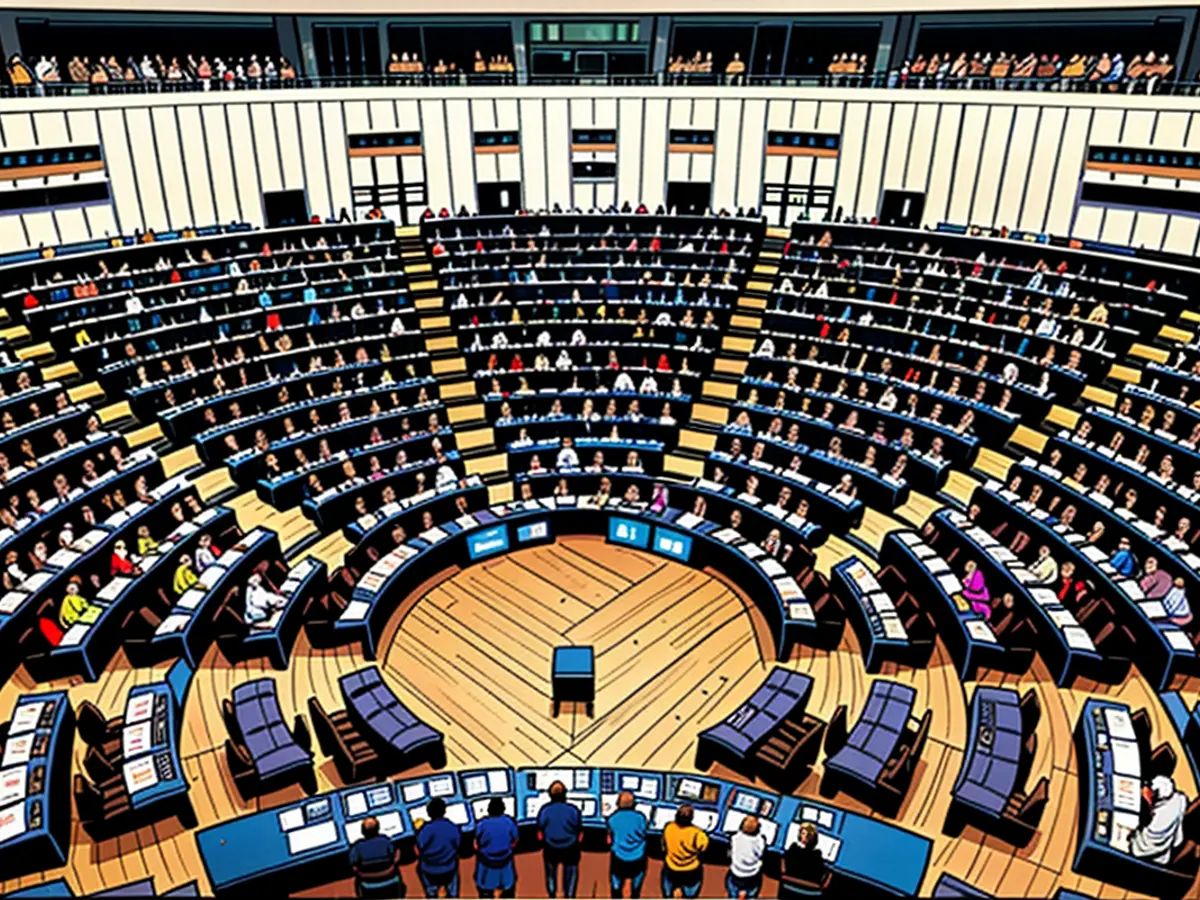Vote for upcoming European vote - Understanding the EU Election Process and Its Consequences
During the upcoming European election, citizens from all 27 European Union (EU) countries have the chance to select their representatives for the next five years. From June 6th to 9th, people will head to the polls to cast their votes for their preferred politicians or political parties. This event will shape the legislation on the continent until 2029.
The election includes approximately 360 million eligible voters spread across all EU member states. In Germany, over 65 million people can participate and cast their ballots at designated stations on June 9th. In contrast to federal elections, European voting doesn't follow the individual constituency model.
In order to vote, a person must meet certain criteria set by their respective countries. For instance, in Germany, you need to be at least 16 years old. Some countries, including Belgium, Bulgaria, Luxembourg, Greece, and Cyprus, have a mandatory voting system in place. This also applies to Germans who can vote in these countries.
Citizens in Germany can choose from one of the 35 national parties and political associations competing in the election. However, each federal state only allows a select few of these parties to compete. For example, the CSU participates in Bavaria while the CDU contends in the remaining 15 states. Heads of parties are often designated as lead candidates. The current EU Commission President, Ursula von der Leyen, is the CDU's lead candidate and Katarina Barley for the SPD.
Any party, even small ones, has the opportunity to attain representation in the European Parliament. This is because there's no predetermined percentage threshold that must be met. The number of seats each party receives is determined by the amount of votes they garner during the election. Electoral procedures differ from country to country, but the general rule is that the more votes a party gets, the more seats they secure.
Apart from the European Parliament, the EU has two other crucial institutions: the Council of the EU States and the EU Commission. The Council is composed of ambassadors from all member states who frequently meet at various levels. Hungary will assume the rotating presidency of the Council in 2024 after Belgium.
The EU Commission serves as a type of cabinet with a representative from each member state. Germany currently has Commission President Ursula von der Leyen representing them. The Commission is responsible for proposing laws and ensuring their implementation in the member states.
The European Parliament is home to 96 elected German representatives, the largest delegation among all EU countries. Cyprus, Luxembourg, and Malta have the smallest delegations with six representatives each. While Germany has a large population, each representative's votes hold the same weight, irrespective of how many citizens they represent.
Parliamentarians often form factions with like-minded colleagues to have more influence. These groups fulfil several purposes, such as having a greater say in the agenda and increased speaking time during debates. Additionally, they have access to higher financial resources. Non-factional parliamentarians also exist.
The European Parliament is crucial for Germany as it has some impact on new laws and regulations. It's important to note that while the MPs' influence on legislation is limited, it's still significant. Laws drafted at the EU level directly impact citizens and businesses in Germany, as they must later be incorporated into national law.
After the election, the recently elected candidates usually form factions, solidifying alliances between like-minded parliamentarians. The first plenary session, scheduled for July 16, marks the start of the new legislative period. Committees and subcommittees, where politicians discuss various topics like foreign affairs, finances, economy, transportation, and education, play an essential role in parliamentary work.
The European Parliament has considerable power in deciding the fate of new laws, and they must be approved by a majority vote. Furthermore, the Parliament plays a key role in deciding EU funding, such as the billion-dollar EU agricultural subsidies.
Finally, after the election, the Parliament will select a new Commission. The European Parliament has the authority to suggest potential candidates, which must then receive approval from a majority before being appointed. Subsequently, the Parliament scrutinizes the proposed Commission members to ensure their suitability for their roles.
Read also:
- The SPD, led by Katarina Barley as their lead candidate, is one of the 35 national parties competing in the upcoming European elections.
- Germany is not the only EU country with significant representation in the European Parliament; Luxembourg, Cyprus, and Malta each have six representatives, fewer than the 96 elected German representatives.
- The CDU, whose lead candidate is Ursula von der Leyen, is a party that competes in the majority of German states (15 out of 16), while the CSU only participates in Bavaria.
- Belgium will assume the rotating presidency of the Council of the EU States in 2024, following Hungary, which currently holds this position.
- The EU Commission, responsible for proposing laws and ensuring their implementation in the member states, has a German representative in Ursula von der Leyen.
- Smaller parties can still obtain representation in the European Parliament, as there is no predetermined percentage threshold required.
- In Luxembourg, Bulgaria, Greece, and Cyprus, voting is mandatory, and this also applies to Germans who are eligible to vote in those countries.
- The upcoming European elections will last from June 6th to 9th, and people will head to the polls to cast their votes for preferred politicians or political parties.
- Germany has the second-largest population among all EU countries, but each representative's votes hold the same weight, irrespective of their constituency's size.
- The Council of the EU States and the EU Commission, along with the European Parliament, are the three crucial institutions in the EU that play significant roles in shaping legislation.
- After the European elections, factions will form between like-minded parliamentarians, and the recently elected candidates will begin their work in the first plenary session on July 16th.








